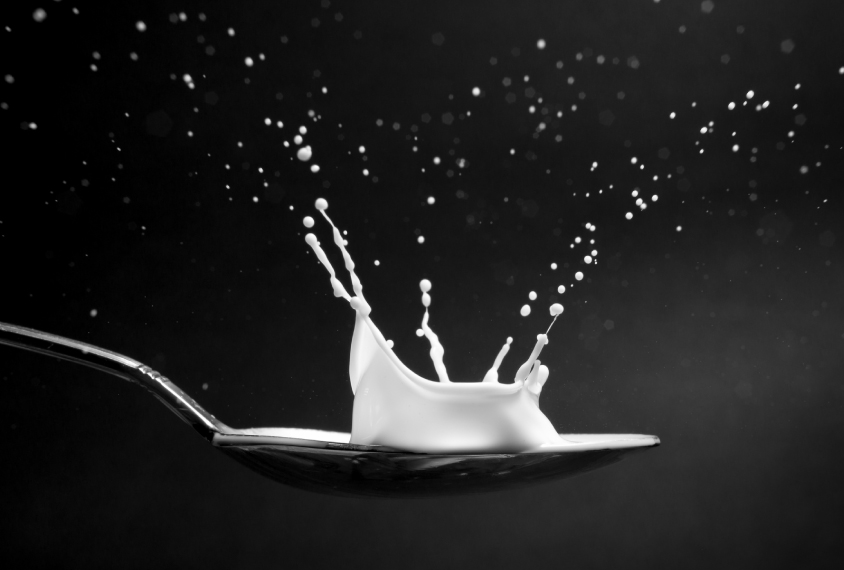Low Vitamin D And Autism

Necessary nutrient: Sunlight and milk are important sources of vitamin D.
Chris Pelliccione / Getty Images
Children born to women who had low blood levels of vitamin D while pregnant more than double their risk of autism1.
The findings come from a study of more than 4,000 children in the Netherlands. Only 68 of the children had an autism diagnosis by age 6, but the researchers still found a statistically significant link between vitamin D deficiency in the women and the children's autism risk.
"When we looked at the analysis, I nearly fell off my chair," says lead researcher John McGrath, professor at Aarhus University in Denmark and the Queensland Brain Institute in Australia. The study was a "lucky strike," given the small sample size, McGrath says.
The absolute risk of autism associated with maternal vitamin D deficiency is still small, however. "Mothers with vitamin D deficiency during pregnancy need not panic about the mental health of their children," McGrath says.
McGrath and his team previously showed an association between maternal vitamin D levels and autism traits2. In the new study, they looked at medical records and other information to identify children with an autism diagnosis. The study appeared 10 April in the British Journal of Psychiatry Open.
"I really think we could say now that there's quite strong evidence that this is one of the factors related to the risk of [autism]," says Mats Humble, senior lecturer at Örebro University in Sweden, who was not involved in the work. The findings are exciting because vitamin D deficiency can be safely treated with supplements, Humble says.
Some experts are not willing to go that far: The study is too small to draw firm conclusions about the link between vitamin D and autism, says Kristen Lyall, assistant professor in the Modifiable Risk Factors program at the A.J. Drexel Autism Institute in Philadelphia.
Investigating e xposure :
People get vitamin D from sunlight and from foods such as fish and milk. In 2008, psychiatrist John Cannell noted that the uptick in autism prevalence coincides with an increasing awareness of the dangers of sun exposure3. Since then, several research teams have looked for a link.
In November, a study of 800,000 children in Scotland revealed that more children conceived in winter months have autism than do those conceived in sunnier seasons. The results hinted that a dearth of sunlight — and vitamin D — boosts the chances of autism.
McGrath and his team analyzed data from the Generation R Study, a Dutch repository of medical information and biological samples from pregnant women, their partners and their children. The repository includes blood collected from the women when they were 21 weeks pregnant and from the umbilical cord immediately after they gave birth. The cord blood reflects vitamin D levels in the fetus during the third trimester.
Last September, the researchers reported that children born to women who had low blood levels of vitamin D at both of these time points were more likely than the other children in the study to have autism features2. The researchers used the Social Responsiveness Scale, a widely used autism screen, for this study.
In the new study, the researchers used medical records to confirm which children had an autism diagnosis. Of the 4,334 children included in the analysis, 68 have autism.
Women who were deficient in vitamin D midway through pregnancy were 2.42 times more likely to have a child with autism than those with normal levels of the nutrient. There was no association between vitamin D level at the end of pregnancy and autism risk.
Most women with a vitamin D deficiency will not go on to have a child with autism: Of the 654 children in the study whose mothers were deficient in vitamin D during pregnancy, only 15 have autism.
Critical window :
No one knows how vitamin D deficiency might increase autism risk. Giving autism mouse models the hormonal form of vitamin D prevents some autism-like behaviors in their pups, says Darryl Eyles, professor of neuroscience at the Queensland Brain Institute, who co-led the study4.
But how the hormone might alter behavior is unclear. What's more, this form of the vitamin isn't safe in humans, and it's unclear if vitamin D supplements will have similar effects, Eyles says.
Some people with autism have low levels of vitamin D5. But it is difficult to determine whether deficiency boosts autism risk or merely reflects autism features, such as picky eating or a tendency to stay indoors.
"That is one reason why these studies on pregnancy or neonatal samples are so important," Humble says.
Lack of vitamin D in the womb would need to act in conjunction with genes and other environmental factors to lead to autism, says study investigator Tonya White, associate professor of child and adolescent psychiatry and radiology at Erasmus University Medical Center in Rotterdam. "Since not all children who had an autism diagnosis were exposed to low maternal vitamin D during pregnancy, there are certainly other factors at play," she says.
Scientists should examine whether there is a critical window when vitamin D is most important for fetal development, Lyall says. "It's possible that vitamin D may be important throughout pregnancy, but I think we need more studies to really learn about the importance of timing in this association," she says.
If additional studies confirm an association between maternal vitamin D deficiency and autism risk, clinicians may recommend that pregnant women take vitamin D supplements, as they do with folic acid.
Source: https://www.spectrumnews.org/news/vitamin-d-deficiency-pregnancy-tied-autism-risk/

Tidak ada komentar: